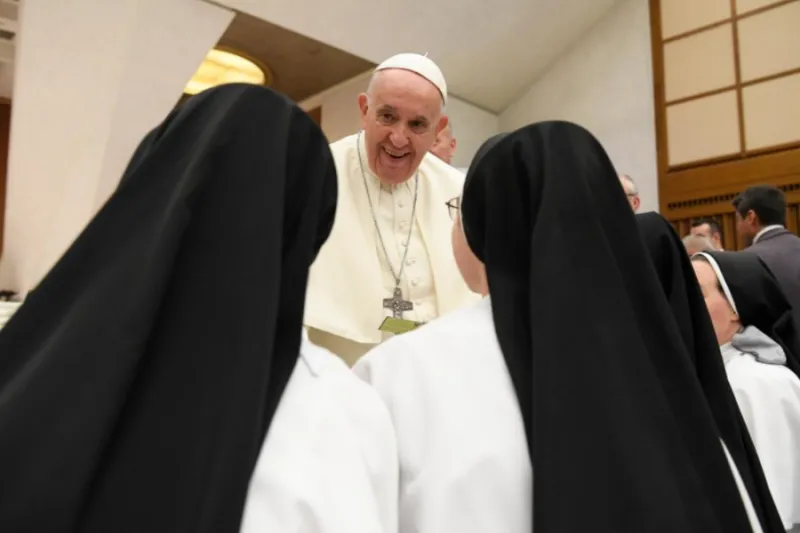
Vatican City, Nov 10, 2021 / 05:17 am (CNA).
Pope Francis encouraged Christians to call on the Holy Spirit more often when facing difficulties, exhaustion, or discouragement in daily life during his general audience on Wednesday.
“Let us learn to invoke the Holy Spirit often,” Pope Francis said in the Paul VI Hall on Nov. 10.
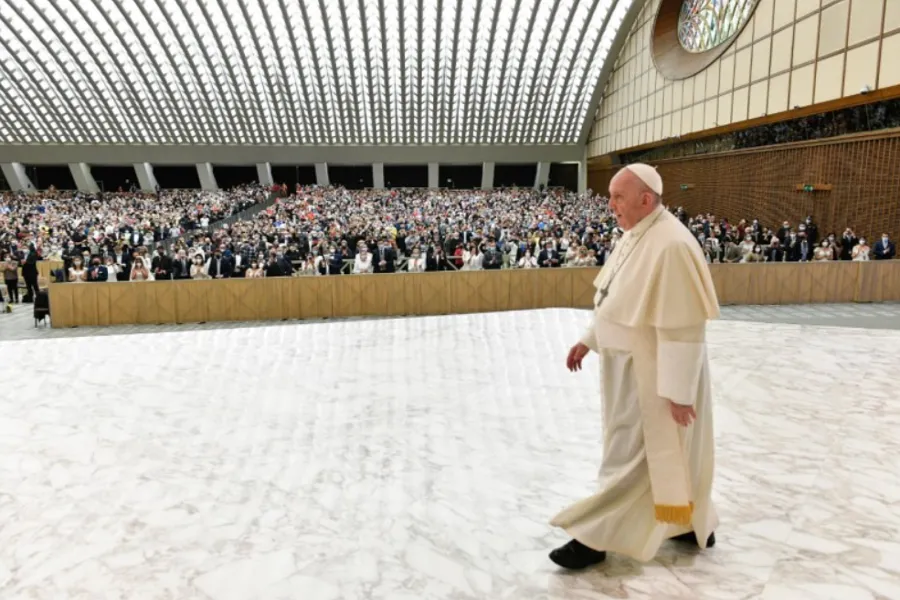
“We can do this with simple words at various moments during the day.”
The pope recommended that Catholics to keep a copy on them of the “beautiful prayer that the Church recites on Pentecost,” which he recited for the pilgrims gathered in the Vatican hall.
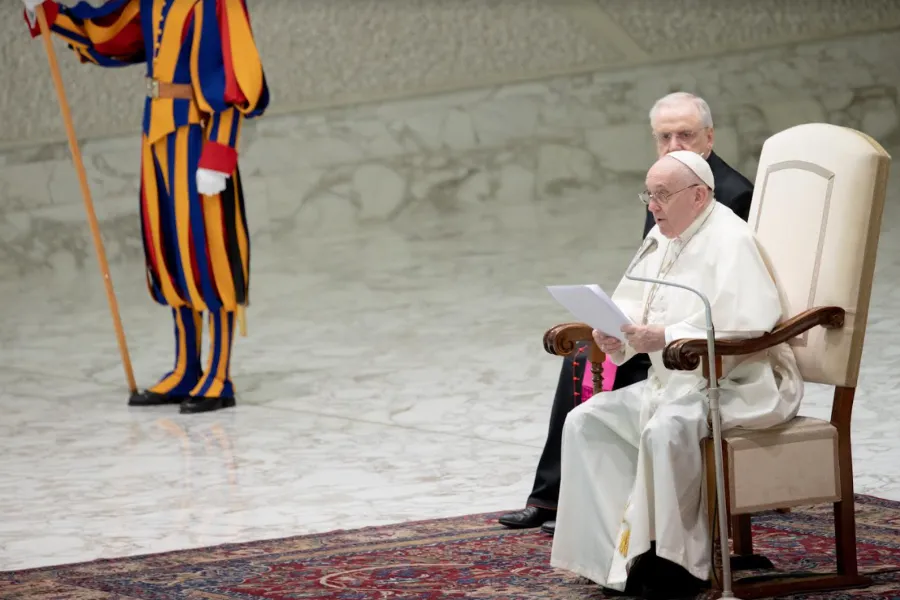
“Come, Holy Spirit, come! And from your celestial home, shed a ray of light divine! Come, come, Father of the poor! Come, Source of all our store! Come, within our bosoms shine. You, of comforters the best; You the soul’s most welcome Guest; Sweet refreshment … Come,” the pope said.
Pope Francis added that if Catholics did not have the prayer on hand, they could simply pray “Come, Holy Spirit” — as “the Madonna and the Apostles prayed during the days when Christ ascended into heaven.”
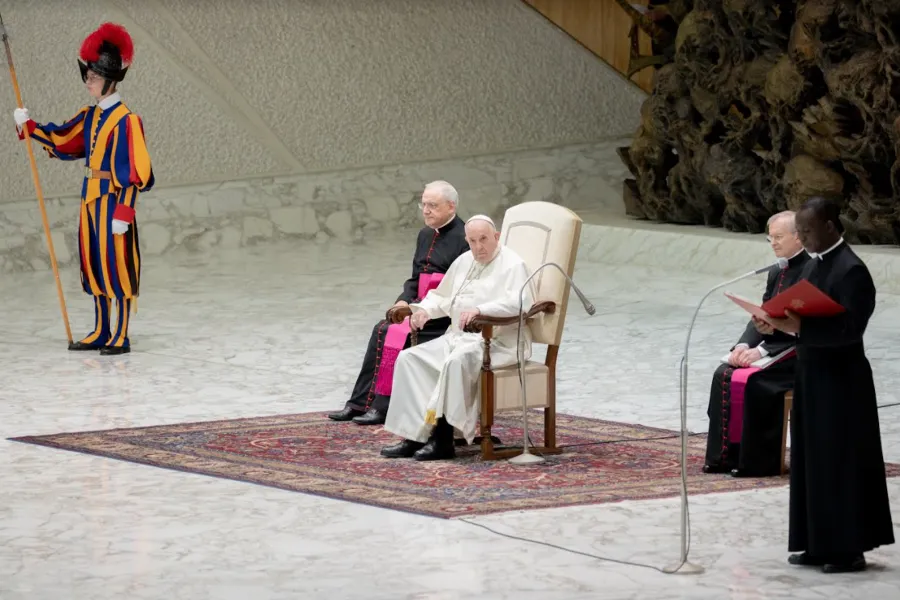
“The key word is this: come. Come. But you need to say it yourself in your own words. Come, because I find myself in difficulty. Come, because I am in the dark. Come, because I don’t know what to do. Come, because I am about to fall. Come. Come. This is … how to call upon the Spirit,” he said.
Pope Francis also offered advice from St. Augustine of Hippo, the fourth-century Doctor of the Church, for Christians for when one feels discouraged, weak, or marginalized by the world.
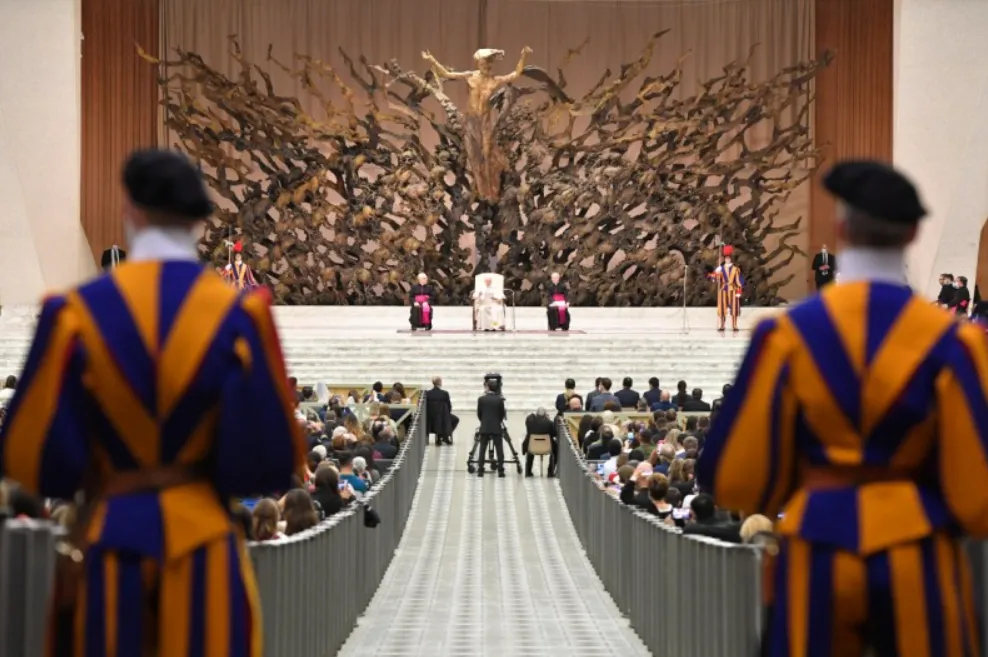
“St. Augustine, referring to the Gospel episode of the storm on the lake, suggests how to react in this situation. This is what he says: ‘The faith of Christ in your heart is like Christ in the boat. You hear insults, you wear yourself out, you are upset, and Christ sleeps. Wake Christ up, rouse your faith! Even in tribulation you can do something. Rouse your faith. Christ awakes and speaks to you… Therefore, wake Christ up… Believe what has been said to you, and there will be tremendous calm in your heart,’” the pope said, quoting one of Augustine’s sermons.
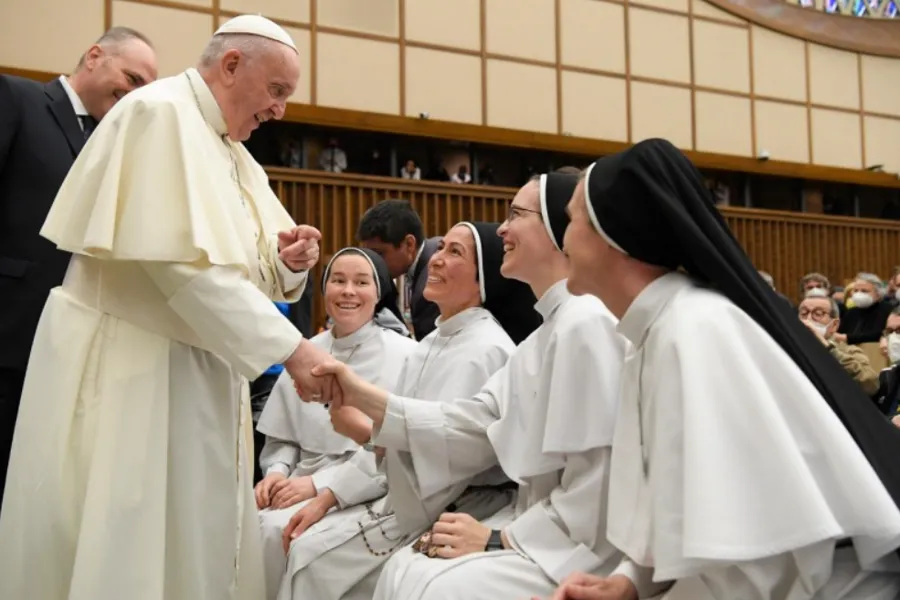
Pope Francis explained: “This is the only thing we can do in terrible moments: wake up Christ who is within us, but sleeps like [he did] in the boat. It is exactly like this.”
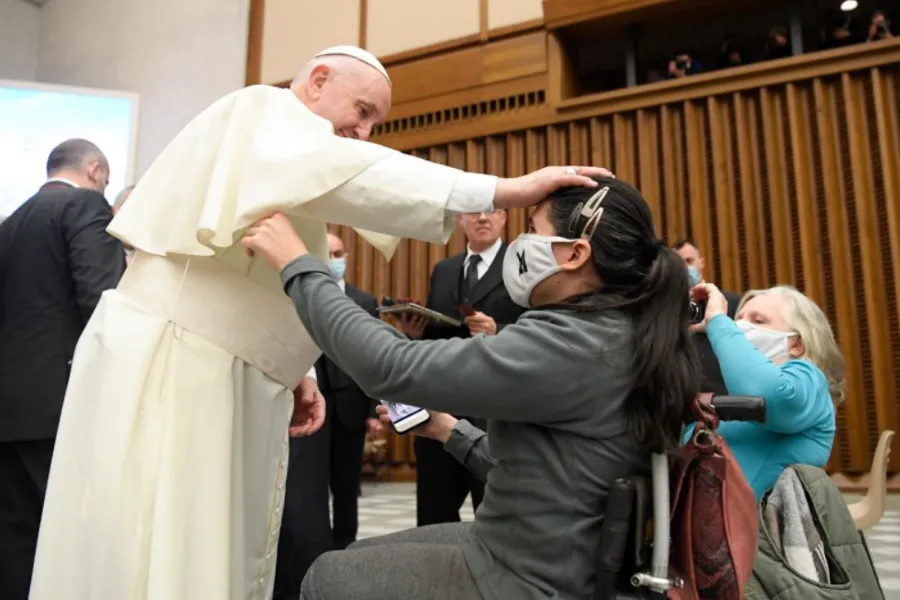
“We must rouse Christ in our hearts and only then will we be able to contemplate things with his eyes for He sees beyond the storm. Through that serene gaze, we can see a panorama that is not even conceivable on our own.”
At the beginning of the live-streamed audience, priests read out Galatians 6:9-10, 18, in which St. Paul exhorts the Christians “not to grow weary in doing what is right.”
“In this challenging but captivating journey, the Apostle reminds us that we cannot let ourselves tire when it comes to doing good,” the pope said.
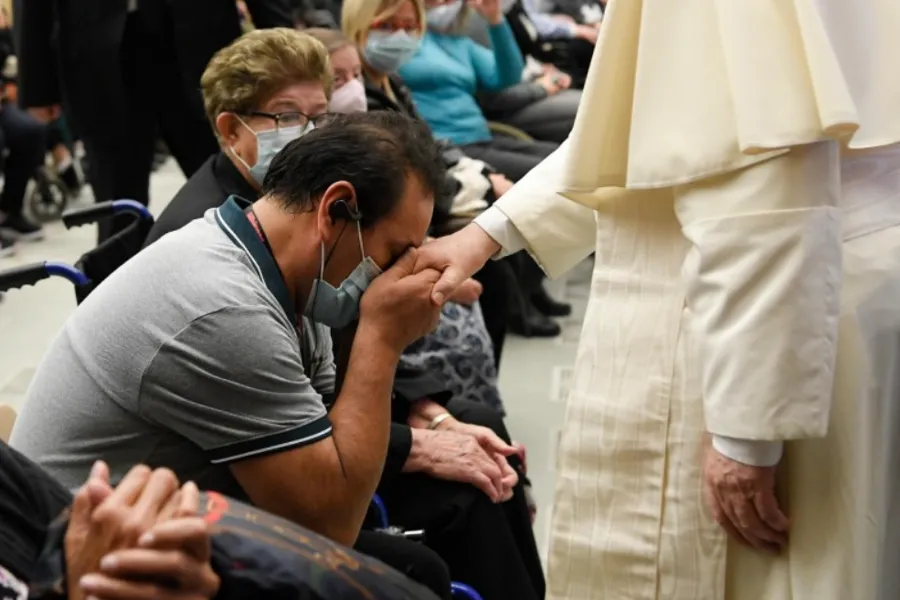
“We must trust that the Spirit always comes to assist us in our weakness and grants us the support we need. Let us, therefore, learn to invoke the Holy Spirit more often.”
The pope noted that this was his last reflection in a 15-week cycle of catechesis on St. Paul’s Epistle to the Galatians.
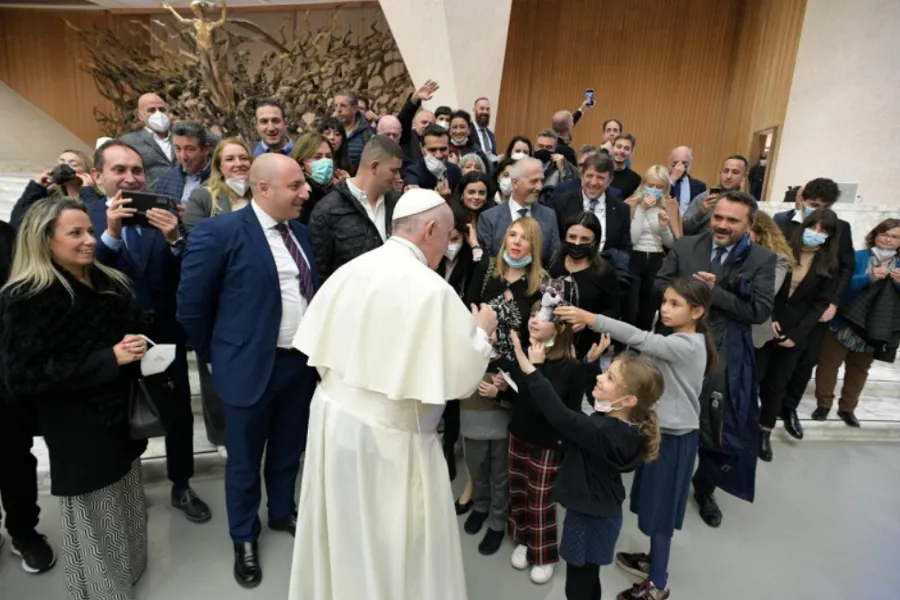
“We have reached the end of the catechesis on the Letter to the Galatians. We could have reflected on so much other content contained in this writing of St. Paul,” Pope Francis said.
“The Word of God is an inexhaustible font. And in this letter, the Apostle has spoken to us as an evangelizer, as a theologian, and as a pastor.”
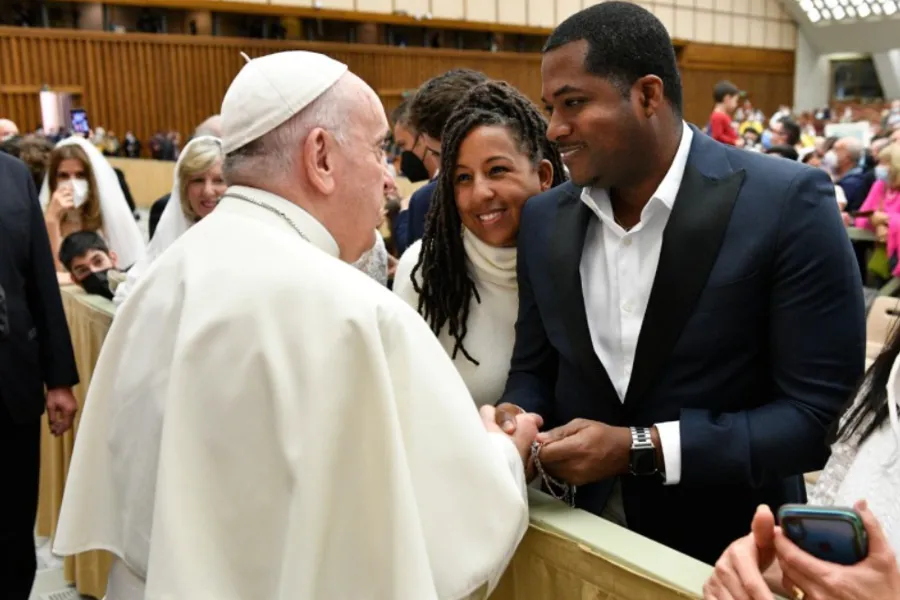
Pope Francis highlighted how St. Paul’s “original intuitions help us discover the shocking newness contained in the revelation of Jesus Christ.”
“Paul never conceived of Christianity in peaceful terms, lacking bite and force — on the contrary. With such passion he defended the freedom Christ brought that it stills moves us today, especially if we think of the suffering and loneliness he must have endured,” the pope said.
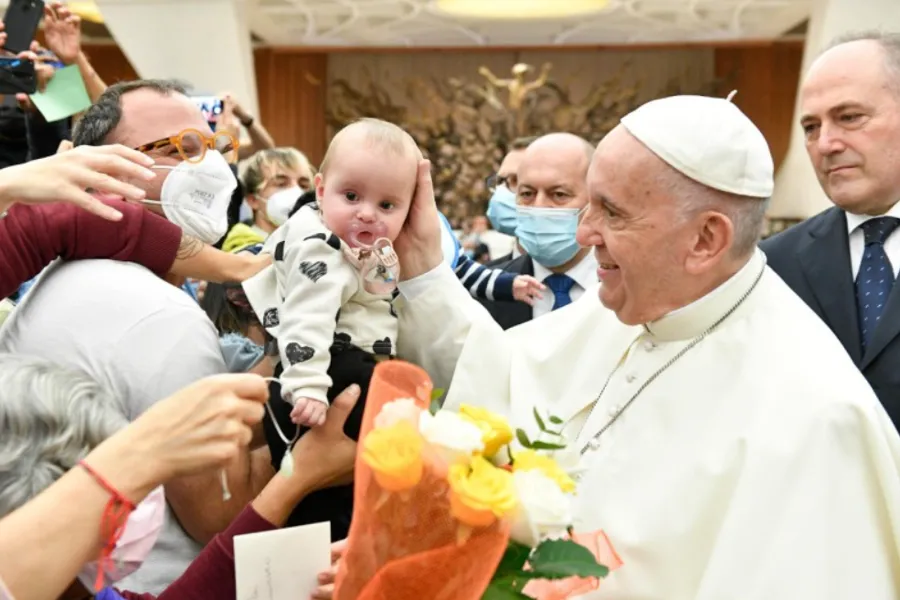
“He was convinced that he had received a call to which he alone could respond; and he wanted to explain to the Galatians that they too were called to that freedom which liberated them from every form of slavery because it made them heirs of the ancient promise and, in Christ, children of God.”
After the address, a precis of the pope’s catechesis was read out in seven languages. Following each summary, he greeted members of the respective language group.
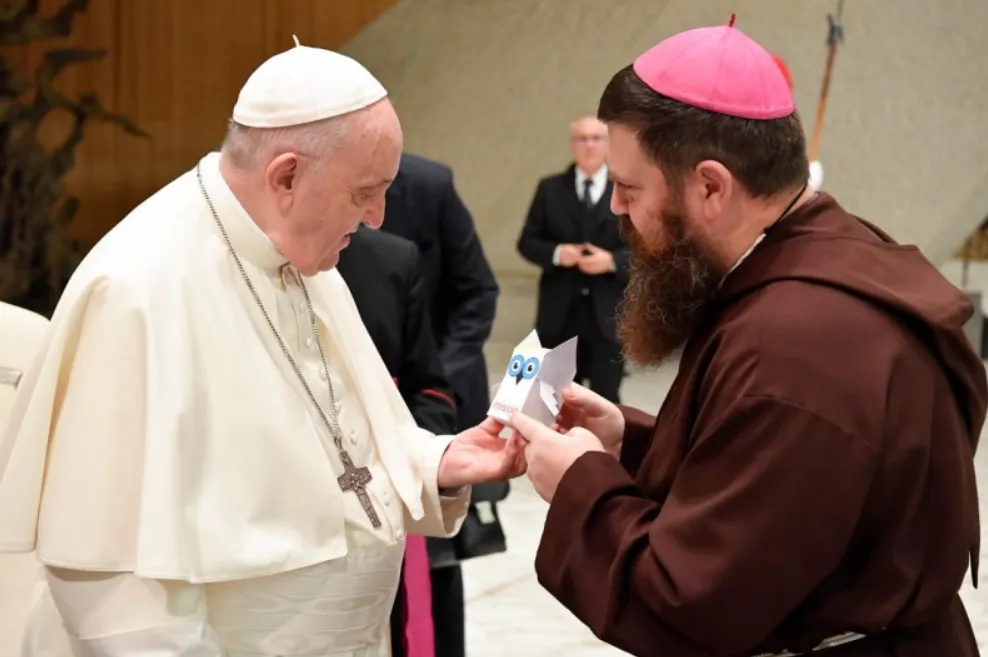
He said: “I greet the English-speaking pilgrims present at today’s Audience, especially the groups from England and the United States of America.”
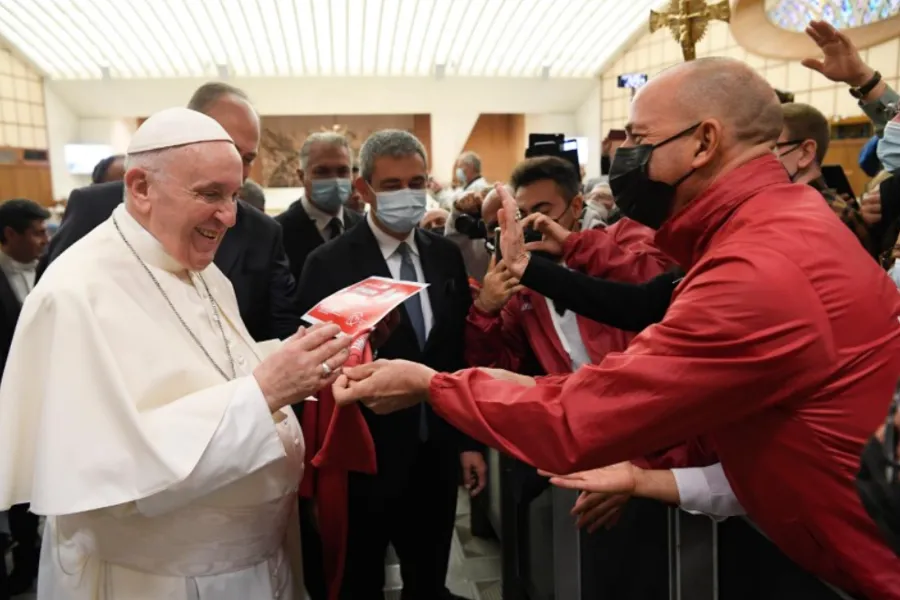
“In this month of November, we pray for the loved ones who have left us and for all the dead, so that the Lord, in his mercy, may welcome them into the Kingdom of Heaven. Upon you and your families, I invoke the joy and peace of Christ. God bless you.”
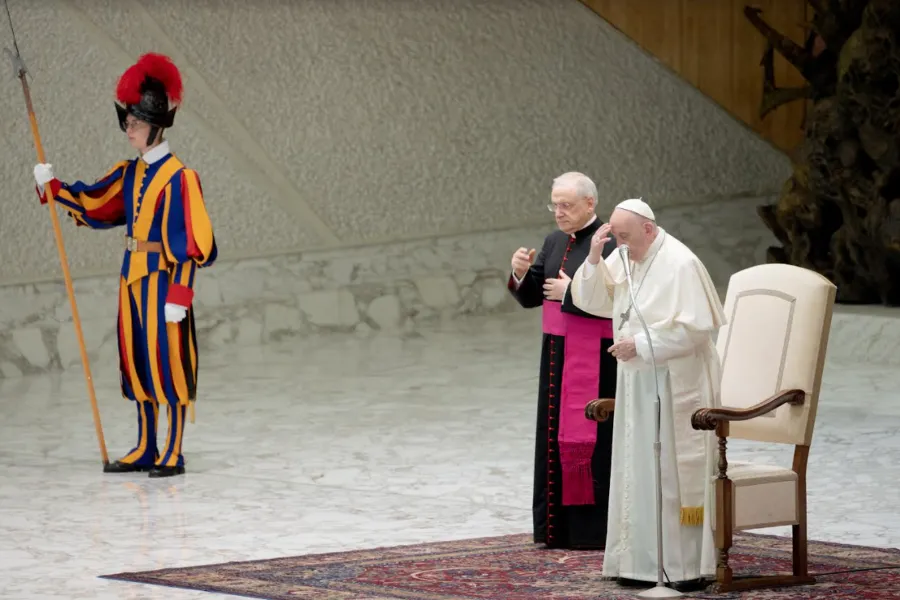
In his greeting to Italian speakers, the pope recalled that Nov. 10 is the feast of the fifth-century pope St. Leo the Great.
He said: “Today the liturgy remembers St. Leo the Great, Pope and Doctor of the Church, who has consecrated his existence to the defense and dissemination of the Gospel truth. Through his intercession, may you live your faith with joy and be serene witnesses to the love of the Lord.”
If you value the news and views Catholic World Report provides, please consider donating to support our efforts. Your contribution will help us continue to make CWR available to all readers worldwide for free, without a subscription. Thank you for your generosity!
Click here for more information on donating to CWR. Click here to sign up for our newsletter.




Perhaps more responsible to consider the Holy Spirit to be there Vicar of Christ to promote and sustain the Way, the Life and the Truth of Jesus Christ.
One reason modernists love the Holy Spirit? Unlike the Incarnate Word who is flesh, blood, and historical Word, the Holy Spirit is silent. Without physicality and without history, the Holy Spirit may be made more readily and easily into the image of Man.
Francis says [the faithful should pray]: “Come, Holy Spirit” — as “the Madonna and the Apostles prayed during the days when Christ ascended into heaven.”
Where exactly does Francis’ claim appear in Scripture?
I see little reason to mouth the monotony of the words of a man who seeks to put his words in the mouth of Christ.
Byzantines already have a prayer to the Holy Spirit that the use frequently…